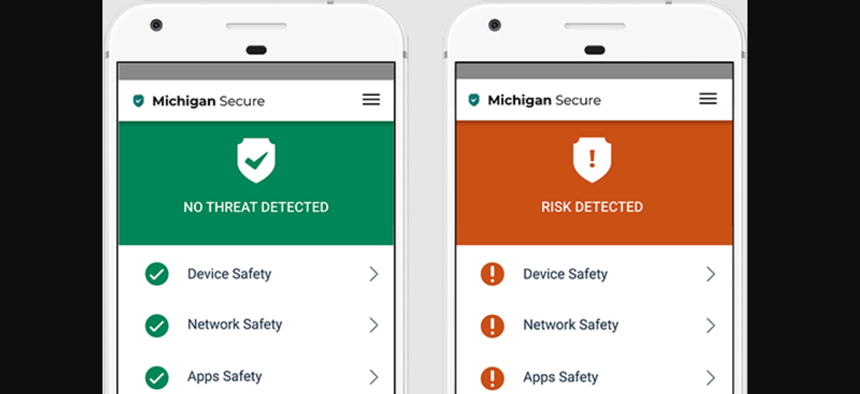App Alerts State’s Residents to Suspicious Activity on Their Phones, Tablets

Michigan Secure app warns of phishing attempts, vulnerable software, risky settings and more.
Michigan residents now have access to a mobile app designed to warn them of threats to their digital devices as they move about in a world that becomes more and more interconnected every day.
The Michigan Secure app alerts users to suspicious activity on their devices, such as if the Wi-Fi they’re about to connect to could be compromised. It also can scan other mobile apps for potential threats before they are downloaded.
“Our reliance on mobile devices has been met with a surge in activity by cybercriminals looking to access those devices to steal our personal information, and possibly much worse,” said Michigan Chief Information Officer Brom Stibitz in a press release announcing the availability of the app. “The Michigan Secure app is a huge step towards protecting Michiganders from these criminals and giving us all some peace of mind as we use our phones and tablets.”
The app does not collect or store personal information from the users who download it. “It exists for the sole purpose of detecting threats and notifying the user,” said Stibitz.
Former Michigan Chief Security Officer Chris Derusha pushed for adoption of the Michigan Secure app. Derusha left his post to become chief information security officer for Joe Biden’s presidential campaign in June 2020, and was recently named the CISO of the federal government.
The Michigan Secure app was developed by Zimperium, a mobile device and app security firm. It is the latest version of the company’s Zsecure app, which relies on machine learning to keep up with current threats. A similar app, NYC Secure, is available to New York City residents. And “we are talking to other cities and states throughout the country,” said Chul Yim, head of state and local government, public education and health care at Zimperium.
The apps protect users’ mobile devices against phishing attempts, malicious and risky apps, vulnerable software, risky settings and device compromise, Yim said.
The apps are available on Apple’s App Store and for Android at Google Play.






